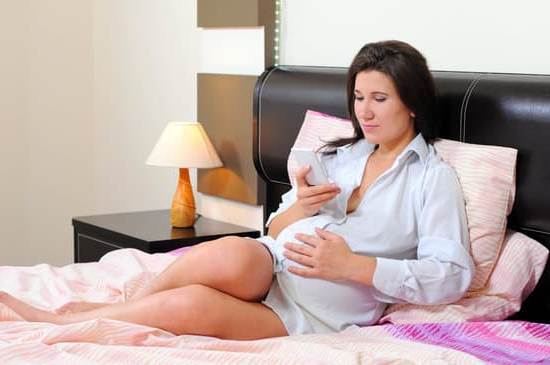Nutritional yeast has gained popularity in recent years as a versatile ingredient with a cheese-like flavor and a nutritional powerhouse. Commonly used in vegan cooking, it is known for its high content of B vitamins, protein, and minerals. However, the question “Is nutritional yeast safe during pregnancy?” often arises as expectant mothers seek to make informed choices about their diet and the safety of consuming certain foods.
During pregnancy, it is essential to ensure that the foods consumed provide the necessary nutrients for both the mother and the developing baby. Nutritional yeast is often praised for its health benefits, but there are specific considerations to take into account when incorporating it into a prenatal diet.
In this article, we will explore the nutritional content of nutritional yeast and how it can be beneficial during pregnancy. We will also delve into any potential risks associated with consuming nutritional yeast during this crucial time.
Additionally, we will provide safe ways to include nutritional yeast in a pregnancy diet, as well as alternative options for pregnant women who may choose to avoid it altogether. It is important for expectant mothers to make informed decisions about their dietary choices, and this article aims to provide valuable insight into incorporating nutritional yeast into a healthy pregnancy diet.
Nutritional Yeast and Pregnancy
Nutritional yeast is a popular food product often used as a flavoring or topping for various dishes. It is commonly known for its cheesy, nutty flavor and is rich in essential nutrients such as protein, fiber, B vitamins, and minerals like zinc and selenium. Many people wonder if nutritional yeast is safe to consume during pregnancy, given its many beneficial properties.
So, is nutritional yeast safe during pregnancy? The answer is yes. Nutritional yeast is generally considered safe to consume during pregnancy due to its high nutritional content. In fact, it can be a valuable addition to a pregnant woman’s diet as it provides essential nutrients that support overall health as well as the healthy development of the baby.
When consumed in moderation as part of a well-balanced diet, nutritional yeast can offer numerous benefits for pregnant women. However, it’s important to be mindful of potential risks associated with consuming nutritional yeast while pregnant.
| Nutrient | Amount |
|---|---|
| Protein | 9 grams per 2 tablespoons |
| Fiber | 4 grams per 2 tablespoons |
| B Vitamins (such as B12) | Varying amounts depending on brand and fortification. |
The Nutritional Content of Nutritional Yeast
Nutritional yeast is a popular food product often used as a cheese substitute, and it is known for its nutty, cheesy flavor. But besides its taste, nutritional yeast is also valued for its nutritional content, making it a popular choice for those looking to boost their intake of certain vitamins and minerals.
The following are some key nutritional benefits of nutritional yeast:
- High in B vitamins: Nutritional yeast is an excellent source of B vitamins, including B12, which is essential for nerve function and the production of DNA and red blood cells.
- Protein: It contains all nine essential amino acids, making it a complete protein source.
- Micronutrients: It is also rich in other important nutrients such as zinc, selenium, and iron.
- Fiber: Nutritional yeast provides a good amount of dietary fiber which aids in digestion and helps regulate blood sugar levels.
Given these nutritional benefits, many people believe that consuming nutritional yeast during pregnancy can be beneficial for both the mother and the developing baby. However, it’s important for pregnant women to consider the potential risks associated with consuming this product.
There still isn’t enough research to definitively determine whether nutritional yeast is safe during pregnancy. While some sources suggest that moderate consumption may be safe, others advise pregnant women to avoid it due to potential contamination or allergic reactions. Therefore, it’s important to consult with a healthcare professional before including nutritional yeast in your pregnancy diet.
Potential Risks of Consuming Nutritional Yeast During Pregnancy
Allergies and Sensitivities
While nutritional yeast is generally considered safe for consumption, there is a possibility that some individuals may be allergic or have sensitivities to it. This could lead to adverse reactions such as skin rashes, digestive issues, or respiratory problems. During pregnancy, it is important to be mindful of any potential allergens that could affect both the mother and the developing baby.
Overconsumption of Fortified Nutrients
Nutritional yeast is often fortified with various nutrients such as B vitamins, folic acid, and zinc, which are beneficial for overall health. However, excessive intake of these nutrients during pregnancy could potentially pose risks. For example, high levels of certain B vitamins like niacin can lead to negative effects on fetal growth and development. It is crucial for pregnant women to regulate their intake of fortified nutrients from nutritional yeast to avoid any possible complications.
Contamination Concerns
Although rare, there is a small risk of contamination in nutritional yeast products, especially if not properly stored or handled. This could result in the presence of harmful bacteria or toxins that may pose health risks during pregnancy. To mitigate this potential danger, pregnant women should ensure that they choose reputable brands and check for proper storage guidelines when purchasing nutritional yeast products.
It is essential for expecting mothers to weigh the potential risks associated with consuming nutritional yeast during pregnancy against its benefits and make informed decisions about its inclusion in their diet. Consulting with a healthcare professional can provide personalized guidance on whether nutritional yeast is safe for an individual’s specific situation.
Safe Ways to Include Nutritional Yeast in Your Pregnancy Diet
When it comes to incorporating nutritional yeast into your pregnancy diet, there are some safe and beneficial ways to do so. Nutritional yeast is a highly nutritious food that can provide pregnant women with essential vitamins and minerals. However, it is important to approach its consumption with caution and consider the potential risks involved.
Use Nutritional Yeast as a Topping
One of the safest ways to include nutritional yeast in your pregnancy diet is by using it as a topping for various dishes. Sprinkling it on top of salads, soups, or even popcorn can add a cheesy and nutty flavor while also providing a boost of nutrients like B vitamins and protein. This method allows you to control the amount of nutritional yeast you consume, reducing the risk of overconsumption during pregnancy.
Incorporate It Into Recipes
Another safe way to incorporate nutritional yeast into your pregnancy diet is by using it in recipes for savory dishes. Adding it to homemade sauces, casseroles, or even homemade veggie burgers can enhance the flavor profile while increasing the nutrient content of your meals. It’s important to note that moderation is key when using nutritional yeast in recipes, especially during pregnancy.
Choose Fortified Nutritional Yeast
Opting for fortified nutritional yeast during pregnancy can be a safe way to ensure that you are getting additional nutrients like B12, which is essential for overall health during pregnancy. Fortified versions may provide added benefits for both the mother and baby while minimizing any potential risks associated with consuming regular nutritional yeast products.
Ultimately, incorporating nutritional yeast into your pregnancy diet can be safe if done in moderation and through mindful consumption practices. By being mindful of portion sizes and choosing fortified options, pregnant women can enjoy the benefits of this nutrient-rich food without compromising their health or the health of their baby.
Alternatives to Nutritional Yeast for Pregnant Women
While nutritional yeast is generally considered safe for pregnant women, some may still choose to avoid it due to personal preferences or concerns. Fortunately, there are a variety of alternatives that provide similar nutritional benefits and can be safely incorporated into a pregnancy diet. Here are some alternatives to consider:
- Fortified Foods: Many foods, such as breakfast cereals and plant-based milk, are fortified with essential nutrients like B vitamins, including BPregnant women can opt for these fortified options to ensure they are getting the necessary nutrients.
- Leafy Greens: Dark leafy greens like spinach, kale, and collard greens are rich in folate, which is crucial for fetal development. These can be easily added to salads, smoothies, or cooked dishes.
- Nuts and Seeds: Almonds, walnuts, chia seeds, and flaxseeds are packed with protein and healthy fats. They can be sprinkled on yogurt, oatmeal, or incorporated into homemade energy bars for a nutritious snack.
It’s important for pregnant women to consult with their healthcare provider or a registered dietitian when exploring alternatives to nutritional yeast. This will ensure that they are meeting their specific nutrient needs during pregnancy. Making informed dietary choices is key to supporting both maternal health and the healthy development of the baby.
In addition to the alternatives mentioned above, incorporating a variety of whole foods into a well-balanced diet is beneficial for pregnant women. Focusing on fruits, vegetables, lean proteins, whole grains, and healthy fats is essential for obtaining essential nutrients that support overall health during pregnancy. Ultimately, there are many options available that can provide the same nutritional benefits as nutritional yeast while catering to individual preferences and dietary needs.
Conclusion
In conclusion, when it comes to the question “Is nutritional yeast safe during pregnancy?” the answer is that yes, it can be a safe and beneficial addition to a pregnant woman’s diet.
Nutritional yeast offers a variety of essential nutrients such as B vitamins, folic acid, and protein, which are important for both the mother’s health and the developing baby. However, it is crucial to consume nutritional yeast in moderation and consult with a healthcare professional before adding it to your pregnancy diet.
It is important for pregnant women to be aware of the nutritional content of the foods they consume, including nutritional yeast. This can help ensure that they are getting the necessary nutrients for a healthy pregnancy while minimizing any potential risks. Understanding the potential risks of consuming nutritional yeast during pregnancy, such as allergens or contamination with harmful bacteria or toxins, can also help expectant mothers make informed choices about their diet.
In making informed choices for a healthy pregnancy, pregnant women should consider safe ways to include nutritional yeast in their diet. This can include opting for fortified nutritional yeast products from reputable sources, as well as exploring alternative sources of essential nutrients if they choose not to consume nutritional yeast. Ultimately, by staying informed and seeking guidance from healthcare professionals, pregnant women can make decisions that support their health and the well-being of their baby.
Frequently Asked Questions
Is Nutritional Yeast OK During Pregnancy?
Nutritional yeast is generally considered safe to consume during pregnancy. It is a good source of B vitamins, protein, and minerals, which can be beneficial for both the mother and the baby. However, it’s important to consult with a healthcare provider before adding nutritional yeast or any other new food to your diet during pregnancy.
Is Eating Yeast Safe During Pregnancy?
Consuming yeast, including nutritional yeast, is generally safe for pregnant women. The kind of yeast used in cooking and baking is different from the type that causes infections like thrush or yeast infections. As always, it’s best to consult with a healthcare provider if you have any concerns about consuming yeast during pregnancy.
Who Should Not Use Nutritional Yeast?
People who are sensitive or allergic to yeast should avoid using nutritional yeast. Additionally, individuals with autoimmune conditions or those taking medications that impact their immune system should also use caution when considering the use of nutritional yeast. Always check with a healthcare professional if you have specific health concerns related to consuming nutritional yeast.

Welcome to my fertility blog. This is a space where I will be sharing my experiences as I navigate through the world of fertility treatments, as well as provide information and resources about fertility and pregnancy.





